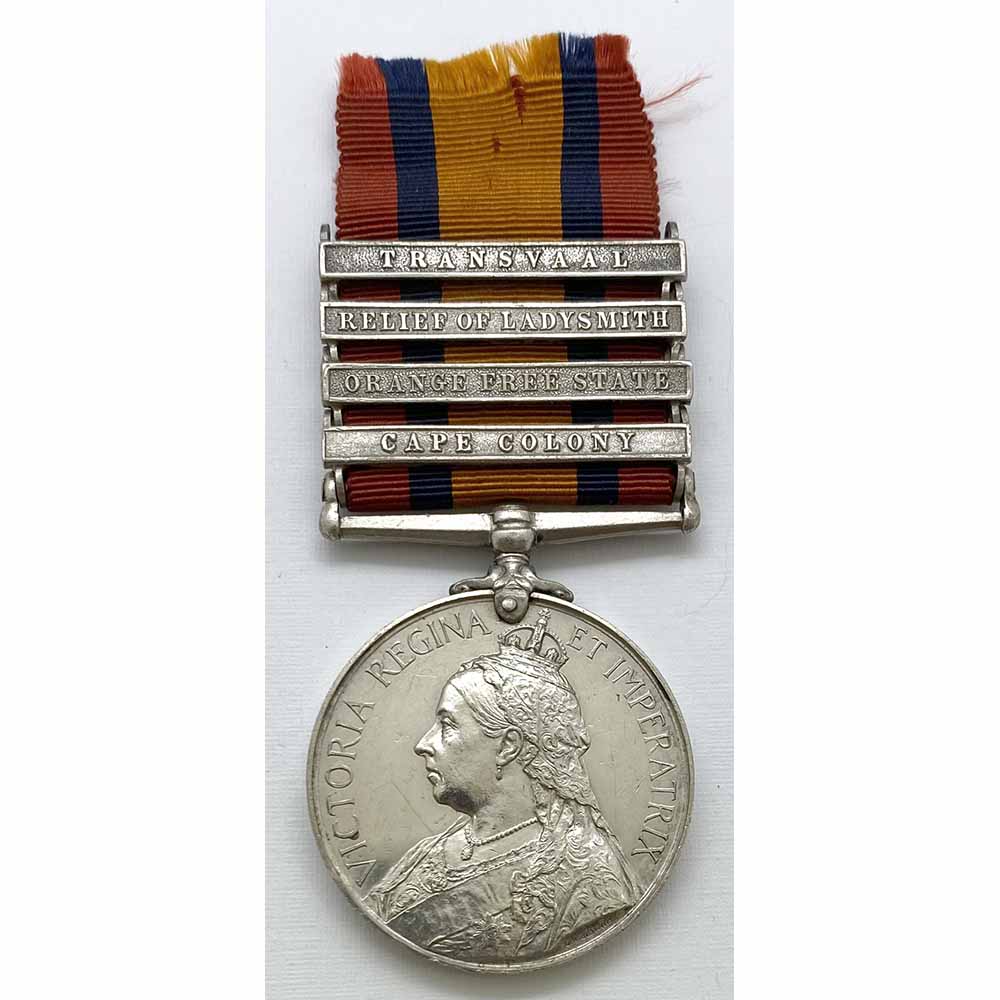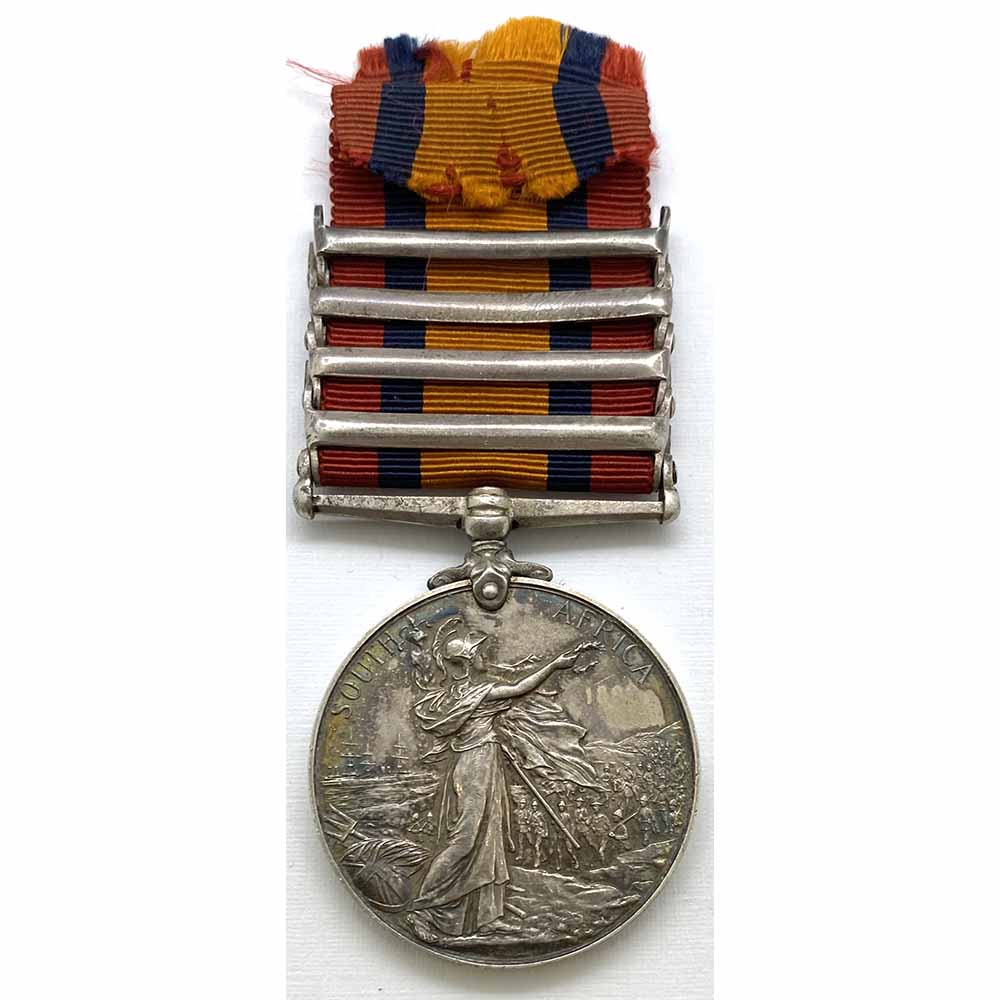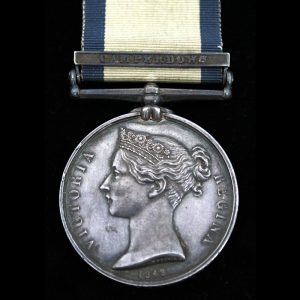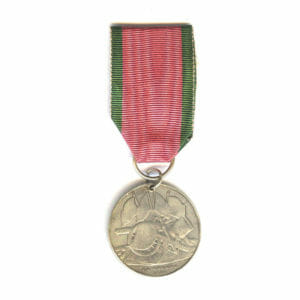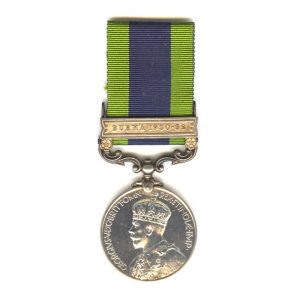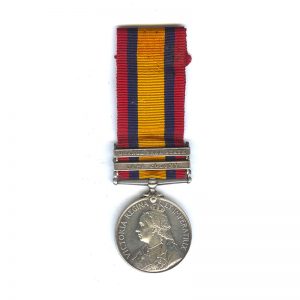Description
Queen’s South Africa Medal, 4 bars, Cape Colony, Orange Free State, Relief of Ladysmith, Transvaal, 6040 Corporal Alexander Mcintyre, Royal Irish Fusiliers, an Irishman from Shankhill, Lurgan, Armagh, Ireland.
Officially impressed: “6040 Cpl. A. Mcintyre. Rl. Irish Fus:”
Alexander Mcintyre was born in Shankhill, Lurgan, County Armagh, Ireland circa 1879.
He first attested for service to join the Royal Irish Fusiliers having recently turned 18 years old at the local depot of 3rd Bn in Armagh, he previously served in the 3rd Battalion Royal Irish Fusiliers Militia, on 29th September 1897.
He was posted to 2nd Battalion on 16th October 1897.
Appointed as Lance Corporal on 28th June 1899, and went with the regiment to South Africa arriving on 23rd October 1899.
He spent 1 year 179 days taking part in the Boer War, before returning home on 20th April 1901.
During his time in the Boer War the 2nd Battalion was part of the Fusilier Brigade under Major Barton, during which time they fought at Colenso, taking some casualties and at Pieters Hill during February 1900, where they took heavy casualties losing 100 men.
They were also part of the efforts to relieve Ladysmith, a small number of “Barton’s Fusilier Brigade” would also later go on to relieve Mafeking.
He was discharged, found to be medically unfit, on 15th February 1902: “Discharged medically unfit for further service authy. No 2 d/ Dublin Castle, 20.1.02”
When WW1 broke out, he was living back home in Lurgan, County Armagh, when he attempted to sign up to fight in the war.
He was a skilled bricklayer aged 36 and was initially accepted as 67899 Sapper with 127th Field Company Royal Engineers during February 1915.
However not long afterwards he was going over medical assessment and possibly hiding the reason for his previous discharge back in 1902, he was found as “Unlikely to become an efficient soldier under para 392 iii(CC) Kings Regs on Medical Grounds.”
His character was stated as Good, “A Steady reliable man”. He was officially discharged on 14th July 1915 at Henley on Thames and as was not entitled to any medals.
